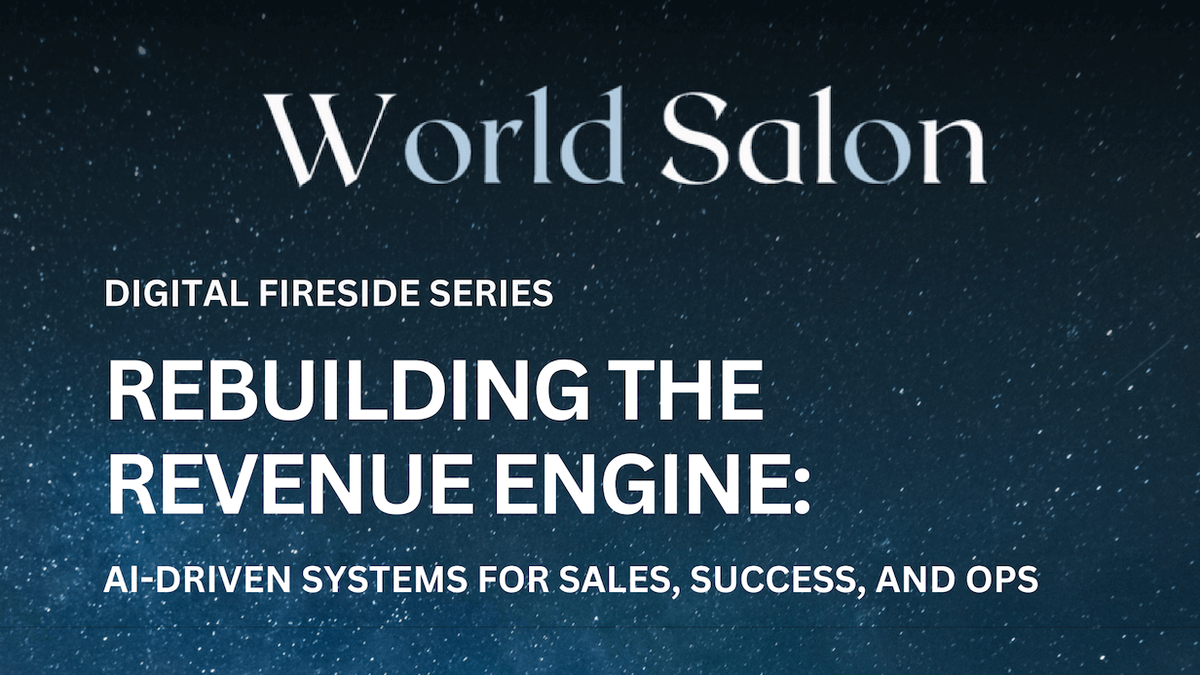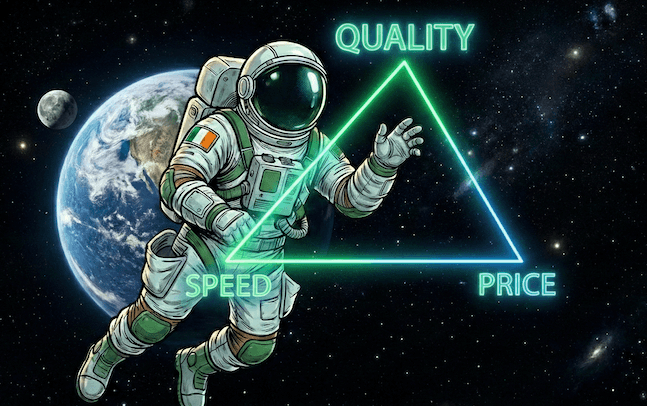Panel Discussion Recap: Rebuilding the Revenue Engine
GTM Club founder Ilkka participated in a panel discussion about how AI is transforming sales, customer success, and operations. Here are the key notes from the conversation.

In August, GTM Club founder Ilkka Vertanen participated in a panel discussion hosted by World Salon. Under the headline Rebuilding the Revenue Engine: AI-Driven Systems for Sales, Success, and Ops, the conversation centred on how AI is transforming go-to-market motions and how leaders can adopt AI into their revenue teams without compromising the human element.
The panel was hosted by Gautam Rishi, co-founder and CEO of oneshot.ai. In addition to Ilkka, the panel featured Paul Sullivan, founder of Arise GTM and author of Go To Market Uncovered, and Kimberly Bryant, Associate Client Partner at Korn Ferry, focusing on AI in commercial effectiveness.
The Evolution of AI in Revenue Teams
Ilkka sees adoption starting with low-threshold use cases. Think note-taking, research assistance, and smoother handovers between SDR, AE, and customer success. Over time, AI becomes almost invisible, working in the background to enhance the quality of preparation for sales calls, automate repetitive tasks, and expedite day-to-day execution. As this takes hold, teams get smaller and more agile. Industry-specific GTM pods can react quickly, with AI agents spotting trends and triggering targeted campaigns within hours.
Industry-specific GTM pods can react quickly, with AI agents spotting trends and triggering targeted campaigns within hours.
Static playbooks no longer fit the pace of AI-accelerated GTM. Ilkka argued for dynamic, data-driven systems that update in real-time and integrate with sellers' daily tools and systems. The panel expanded on how to make modern playbooks stick. Guidance should appear in the flow of work, not in a separate slide deck. AI should strengthen good fundamentals, not replace them. Well-documented processes remain the foundation in any playbook, whether or not it includes AI.
The other speakers agreed that success with AI depends on more than just tools: culture and change management emerged as constant themes. Organisations that treat process quality, documentation, and governance as non-negotiable find it easier to integrate AI across teams and functions. As multiple leaders adopt AI tools simultaneously, energy-wasting tool sprawl becomes a real risk. A smaller set of well-integrated capabilities creates momentum and trust. Siloed deployments create friction and waste while unified strategies across sales, customer success, and operations produce better results and scale.
Human and AI Collaboration
The discussion often returned to the topic of human value. Organisations want to move quickly with AI, but they should also balance this with maintaining a human and consistent customer experience. AI removes toil, improves preparation, and strengthens handovers, but people build relationships, read context, and earn trust. Leaders should protect the moments where personal contact matters most.
Leaders should protect the moments where personal contact matters most.
Teams will need AI literacy, low-code capability, and stronger technical skills alongside core sales competencies. The definition of a sales superstar may evolve soon as technical expertise is combined with effective communication and relationship-building skills. Talent acquisition, HR, and sales enablement must adapt to the new normal so they can identify and nurture emerging superstars and new skill development.
For early-stage companies, the advice was to validate the ideal customer profile and key pain points before investing heavily in AI-driven workflows. They should first speak with customers, confirm the issue, and then utilise AI to refine and scale what already works. This sequence protects product-market fit and prevents an AI layer from obscuring customer contact or feedback. AI enables teams to move faster, but it does not mean one can skip the legwork.
Key Takeaways
The session left participants with guidelines for bringing AI into revenue operations:
- Customer discovery comes first; AI is there to refine and scale, not to replace customer interaction.
- Support AI rollouts with cultural and change management programmes. Aim for unified strategies and governance to prevent tool spaghetti.
- Develop future skills across teams and nurture individuals who can bridge the gap between today and tomorrow.
As the discussion showed, AI is already reshaping GTM teams. Yet the fundamentals remain: listen to customers, build trust, and document processes. When combined, these elements create revenue engines that are faster, sharper, and future-proof.




